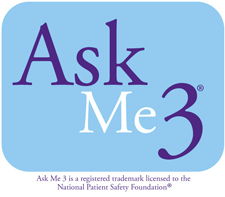
Earlier this year, the National Patient Safety Foundation’s Lucian Leape Institute issued a report about how critical patient and family engagement is for ensuring patient safety. Health literacy problems continue to be one of the barriers to effective patient partnerships. With Health Literacy Month in progress, there is no better time to learn more about this topic and to work to improve communication.
The Institute of Medicine defines health literacy as “the degree to which an individual has the capacity to obtain, communicate, process, and understand basic health information and services to make appropriate health decisions.” That involves more than just the ability to understand word meanings. It requires listening skills, communicating thoughts, facility with numbers, and judgment.
By some estimates, only 12% of English-speaking adults in the United States are proficient in these skills. Studies have shown that patients with poor health literacy skills receive less preventive care, have more chronic illness, and have higher-than-average utilization of services such as emergency care and hospitalization.
Clinicians and consumers alike need help in the form of training and tools that can facilitate communication—and ultimately lead to more meaningful and productive engagement and partnership. For example, clinicians can use teach-back and reduce medical jargon (see Words to Watch) when they talk to patients and families.
 The National Patient Safety Foundation’s Ask Me 3 program is designed to improve communication between patients and health care providers by helping patients learn to ask their health care providers key questions:
The National Patient Safety Foundation’s Ask Me 3 program is designed to improve communication between patients and health care providers by helping patients learn to ask their health care providers key questions:
- What is my main problem?
- What do I need to do?
- Why is it important for me to do this?
Through brochures, posters, a video, and other methods, this program encourages patients to become active members of their health care team, with the ultimate goal of improving health outcomes.




